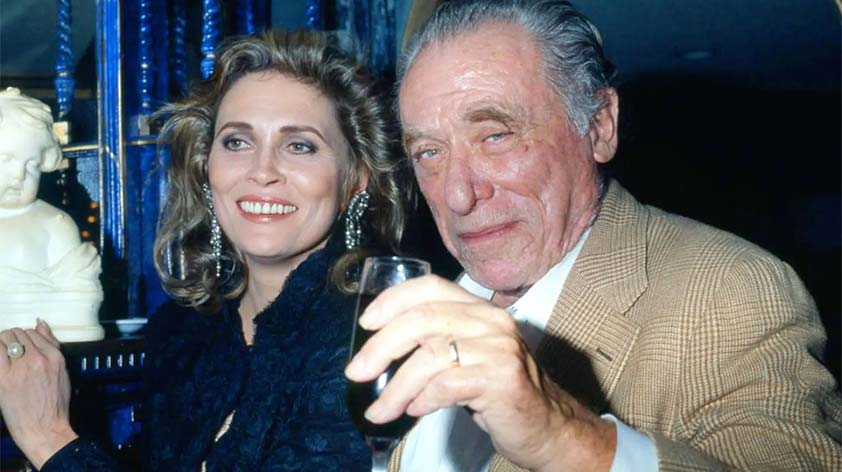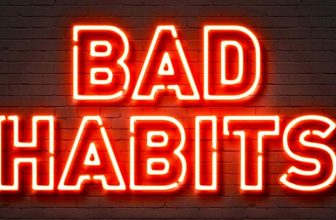
“No one will know the violence it took to become this gentle” –Josh “The Punk” Thomson. In this three-part article, I will analyse the personality of one of the most graphic writers that have existed using the Jungian Theory (Carl Jung’s theory and work). Who am I talking about? The one and only Charles Bukowski. So, without further ado, here is a Jungian Analysis of Charles Bukowski (Part 1 of 3)!
My mission is to take you, the reader, on a journey inside Bukowski’s mind because by doing this we can understand the essence of every single poem and word that he wrote and trust me…this is not going to be a walk in the park by any means. This is full of abuse, trauma, promiscuity, cigarettes and alcohol, so don’t continue reading if you’re squeamish!
In this first part we’ll talk about the following topics:
- Who was Charles Bukowski?
- Introduction of the Analysis
- Extroversion vs Introversion
- Functions: Primary and Secondary
I hope you enjoy this analysis and the poems I added to explain my points. So, let’s begin!
Who was Charles Bukowski?
Charles Bukowski was one of the best-known contemporary American writers of poetry and prose. Born in Andernach, Germany, his father was an American soldier and his German mother lived in the United States since he was 3 years-old.
He was raised in Los Angeles, where he lived for 50 years. He published his first story in 1944 when he was 24 years-old and began writing poetry at the age of 35. He passed away in San Pedro, California, on March 9th, 1994, at the age of 73, shortly after completing his last novel, “Pulp.”
During his lifetime he wrote more than 44 books of poetry and prose, including several novels. As mentioned before, I’m going to be guided by Carl Jung’s theory, then I will present his key concepts with a brief explanation of their meaning, and apply them to explain Bukowski’s personality. Now, let’s begin with his concepts and analysis.
Analysis of Charles Bukowski
Extroversion vs Introversion
To begin with, after reading his books, it’s very easy to know that Charles was an introvert. One of the traits with which he most identifies is that he had difficulty both settling in and adapting to the environment.
In his book “Ham on Rye” we can see his life as a child and how (partly due to mistreatment by his parents) he was always a lonely person. After spending nights alone in a seedy hotel room as a teenager, books, and alcohol were his only company.
Reflexive-introverted
He is a person with great intellectual activity. They are imaginative, but distrustful, lovers of conspiracy theories, stubborn and very tenacious when it comes to achieving their goals. Sometimes, they are seen as that somewhat strange profile and disconnected from their environment, but once contact is established with them, they become highly appreciated people.
Since he discovered reading, all he did was read and read, in his books he mentions great artists such as John Fonte, Louis-Ferdinand Céline, Van Gogh, Dostoevsky, Beethoven, and Shakespeare among others.
He also mentions his love for classical music and the song Miracle: “I have just listened to this symphony which Mozart dashed off in one day and it had enough wild and crazy joy to last forever, whatever forever is Mozart.” And for the second function…
Sentimental Introverted
This is characterized by preferring loneliness or small social circles. They can appear at first glance, sullen and melancholic. They do their best to be inconspicuous and like to stay quiet, but they do have good social skills. They are also highly empathic people who are also focused on the needs of others.
Anyone who knew him, both in person and through his works, knew that he preferred solitude and that at first glance he appears to be melancholic. He hates being the centre of attention, many of the people (characters) in his books would say that he is an idiot, but others would say that he has a big heart. Social skills can be related to the concept of a person, a concept that we will talk about later.
On Loneliness
“I’ve never been lonely. I’ve been in a room — I’ve felt suicidal. I’ve been depressed. I’ve felt awful — awful beyond all — but I never felt that one other person could enter that room and cure what was bothering me…or that any number of people could enter that room.
In other words, loneliness is something I’ve never been bothered with because I’ve always had this terrible itch for solitude. It’s being at a party, or at a stadium full of people cheering for something, that I might feel loneliness.
I’ll quote Ibsen, “The strongest men are the most alone.”I’ve never thought, “Well, some beautiful blonde will come in here and give me a ***-job, rub my b***s, and I’ll feel good.” No, that won’t help. You know the typical crowd, “Wow, it’s Friday night, what are you going to do? Just sit there?” Well, yeah.
Because there’s nothing out there. It’s stupidity. Stupid people mingling with stupid people. Let them stupidify themselves. I’ve never been bothered with the need to rush out into the night.
I hid in bars, because I didn’t want to hide in factories. That’s all. Sorry for all the millions, but I’ve never been lonely. I like myself. I’m the best form of entertainment I have. Let’s drink more wine!”
According to Jung, a mixture of the four functions would provide us with an adequate approach to seeing the world, however, one main one can be observed, one secondary one can be observed and the remaining two remain in the unconscious. In this case, Sentimental-Introvert is what best fits with Bukowski as the main function and Reflexive-Introvert would be his secondary function.
What do you think of this analysis? Let us know in the comments below. The next concept to discuss in the next article is “The Persona” so stay tuned!









